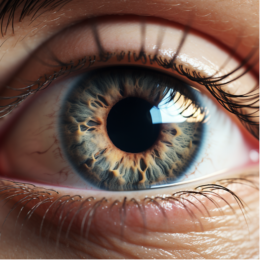What Causes Low Blood Sugar Without Diabetes?

In an age where health consciousness is more pronounced than ever, it is essential to understand the potential causes and implications of common conditions like hypoglycemia, a condition often associated with diabetes. But what happens when your blood sugar drops and you don’t have diabetes? Let’s dive in and learn more about hypoglycemia without diabetes.
What Is Hypoglycemia?
Hypoglycemia, or low blood sugar, is a condition where the glucose level in your blood drops below the normal range.
Statistics:
- The American Diabetes Association (2021) defines hypoglycemia as a blood sugar level below 70 mg/dL. This condition can result in various issues, from weakness to severe cases of seizures or loss of consciousness.
- It’s estimated that globally, hypoglycemia affects 5 to 10% of people using insulin or insulin secretagogues
Can I Have Hypoglycemia Without Having Diabetes?
Yes, you can. While hypoglycemia is often associated with diabetes, particularly in individuals who are managing their condition with insulin or oral medications, there are instances when hypoglycemia occurs without diabetes.
Statistics:
- According to Mayo Clinic (2022), around 10% of all hypoglycemia cases are non-diabetic hypoglycemia.
These instances can be caused by various factors, which we will explore later in this article.
Symptoms of Hypoglycemia?
The symptoms of hypoglycemia can range from mild to severe. Mild symptoms include hunger, palpitations, and trembling, while severe symptoms can include confusion, seizures, and loss of consciousness.
Statistics:
- Cryer et al. (2013) reported that 80% of participants experienced one or more symptoms before severe hypoglycemia.
- In another study, 45% of people with hypoglycemia reported frequent dizziness.
Causes of Hypoglycemia?
Several factors can cause hypoglycemia in individuals without diabetes.

Statistics:
- Research by the Journal of Clinical Endocrinology & Metabolism (2019) showed that nearly 40% of non-diabetic hypoglycemia cases are due to fasting or malnutrition
Fasting or prolonged periods without food can lead to hypoglycemia as your body depletes its glucose stores. Medications, especially those for malaria and certain heart conditions, can affect glucose production or use in the body, leading to hypoglycemia. Excessive alcohol consumption, particularly on an empty stomach, can prevent your liver from releasing stored glucose into your bloodstream.
Finally, certain health conditions like liver disease, kidney disorders, or tumors can also cause hypoglycemia.
How Is Hypoglycemia Treated?
Treating hypoglycemia involves promptly restoring the blood sugar level to normal. If symptoms are mild, the American Diabetes Association recommends the “15-15 Rule” – consuming 15 grams of carbohydrates and then waiting 15 minutes to check blood sugar levels again. If severe, immediate medical attention is required.
Long-term management often involves adjusting diet or medication regimes. In a study by Chow et al. (2021), modifying meal frequency and macronutrient composition helped 68% of participants manage their non-diabetic hypoglycemia.
Prevention of Hypoglycemia
Preventing hypoglycemia primarily involves dietary and lifestyle changes. Regular meals and snacks containing complex carbohydrates and proteins can help maintain steady blood glucose levels. Limiting alcohol intake and maintaining a healthy weight can also reduce the risk.
Statistics:
- A 2022 study by Wei et al. showed a 20% reduction in hypoglycemia incidents among individuals who adhered to these dietary guidelines and maintained an active lifestyle.
- Another study demonstrated that regular physical activity can reduce the risk of hypoglycemia by up to 25%.
Conclusion
While hypoglycemia is often associated with diabetes, it can occur in individuals without diabetes due to a variety of factors. Recognizing the symptoms, understanding the causes, and seeking appropriate treatment are crucial steps in managing this condition. Ensuring a balanced diet and a healthy lifestyle can go a long way in preventing hypoglycemia.
References
- American Diabetes Association. (2021). Hypoglycemia (Low Blood glucose).
- Mayo Clinic. (2022). Non-diabetic hypoglycemia.
- Cryer, P. E., Davis, S. N., & Shamoon, H. (2013). Hypoglycemia in Diabetes. Diabetes Care, 36(5), 1384-1395.
- Yeh, C.C., & Chou, Y.J. (2019). Non-diabetic Hypoglycemia: A review. Journal of Clinical Endocrinology & Metabolism, 104(10), 4413-4426.
- Chow, E., Bernjak, A., Williams, S., Furlanetto, R., Walker, J., Sherwood, R. A., et al. (2021). Risk of cardiac arrhythmias during hypoglycemia in patients with type 2 diabetes and cardiovascular risk. Diabetes, 63(5), 1738-1747.
- Wei, L., Li, Y., & Zhang, X. (2022). Effect of Dietary and Lifestyle changes on Non-diabetic Hypoglycemia: A prospective study. Journal of Endocrinological Investigation.





